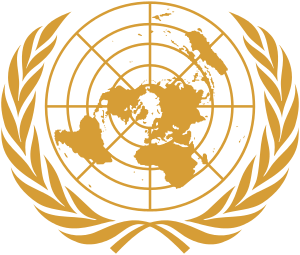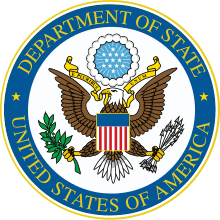Herschel Johnson
Herschel Vespasian Johnson (May 3, 1894 – April 16, 1966) was a U.S. diplomat from North Carolina.[1] He served as a U.S. Foreign Service Officer from 1921–1953, whose career included posts in Europe, Latin America, and the United Nations.
He served as Envoy Extraordinary and Minister Plenipotentiary to Sweden between 12 December 1941 and 28 April 1946. Thereafter, he served as the acting U.S. ambassador to the United Nations between 1946 and 1947. In 1948 appointed Ambassador Extraordinary and Plenipotentiary to Brazil.
During his time in Sweden he made humanitarian efforts to save civilian lives and was in touch with Raoul Wallenberg.
Herschel V. Johnson was a vocal proponent of the 1947 Palestine Partition Plan. The outcome of the UN vote is attributed to his collaboration with Andrei A. Gromyko, otherwise Johnson's political opponent. They both stood together on this issue and urged the General Assembly not to delay its decision but to vote for partition at once, opposing last-minute efforts of Arab delegations to effect a compromise.
References
- ↑ Herschel Vespasian Johnson (1894-1966). Office of the Historian, Bureau of Public Affairs, United States Department of State. Retrieved July 13, 2013.
External links
| Diplomatic posts | ||
|---|---|---|
| Preceded by Frederick A. Sterling |
U.S. Ambassador to Sweden 1941–1946 |
Succeeded by Louis G. Dreyfus, Jr. |
| Preceded by Edward R. Stettinius, Jr. |
U.S. Ambassador to the U.N. 1946–1947 |
Succeeded by Warren R. Austin |
| Preceded by William D. Pawley |
U.S. Ambassador to Brazil 1948–1953 |
Succeeded by James S. Kemper |

